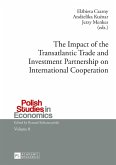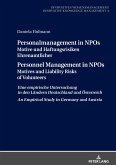This dissertation investigates the influence of large family shareholders on financial decisions and the performance of listed firms in Germany. This country is especially interesting, as the German corporate governance system is considered less investor- friendly with a limited influence of shareholders on managerial decisions. Based on the incentive structure of family blockholders and their influence in corporate boards, the four studies offer a novel approach to analyzing the financial behavior of family firms. They use a hand-collected panel dataset identifying blockholders and every board position in 278 corporations. The dissertation demonstrates that the degree of family involvement in boards significantly influences working capital and earnings management as well as stock market performance and provides contributions for academia and practitioners alike.
Bitte wählen Sie Ihr Anliegen aus.
Rechnungen
Retourenschein anfordern
Bestellstatus
Storno








